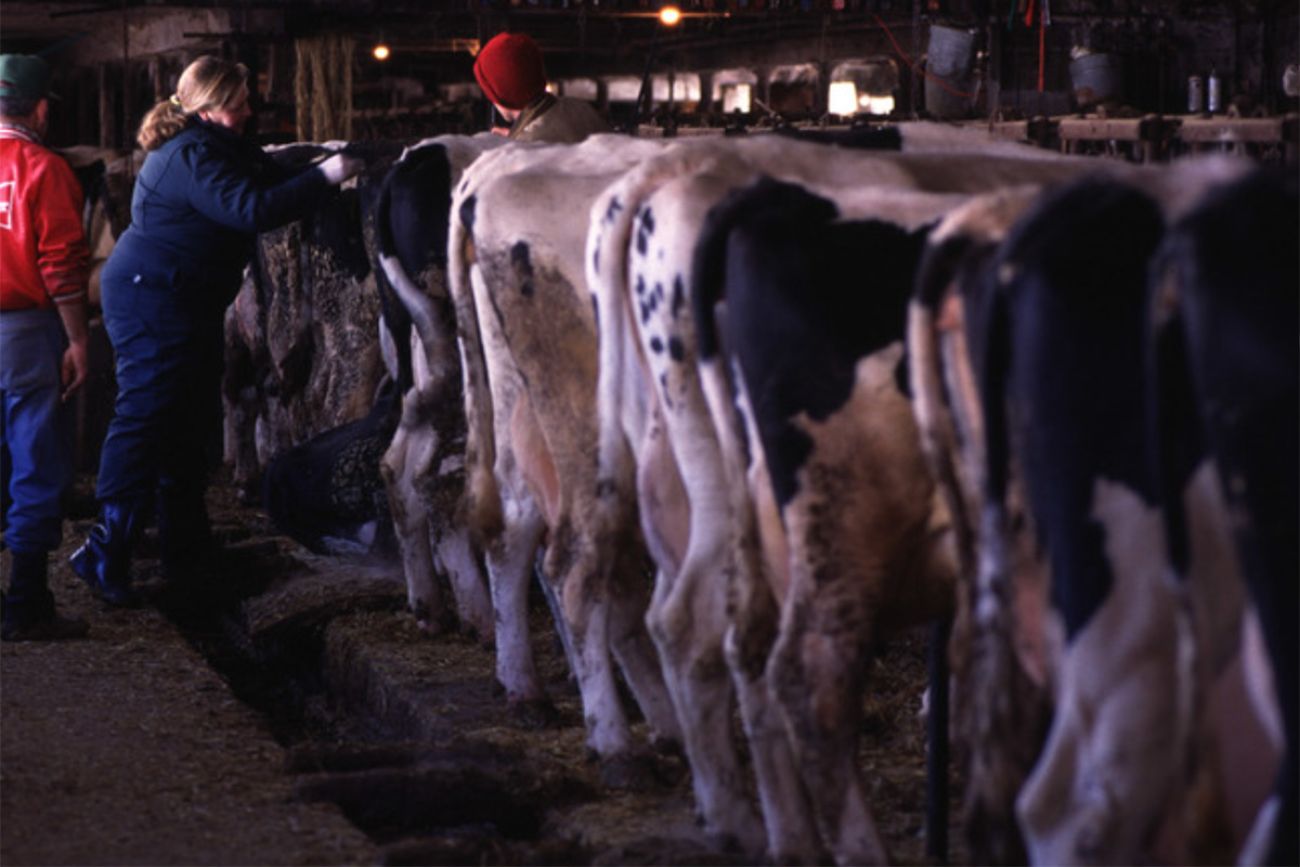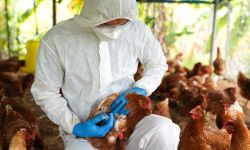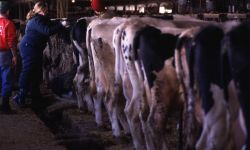Bird flu found in cattle on a dairy farm in central Michigan

- Highly pathogenic avian influenza was found in cattle in Montcalm County
- State officials believe it was from infected cattle received from Texas
- The virus is spread from infected birds to mammals but the public health risk is low
May 1: Michigan farmers must step up bird flu fight under new emergency order
April 22: Bird flu hits turkey flock in Newaygo County as virus spreads in Michigan
Federal and state agriculture officials have confirmed highly pathogenic avian influenza in a herd of cattle on a dairy farm in Montcalm County.
The farm had recently received cows from Texas, where a very similar strain of the virus has been detected, the U.S. Department of Agriculture said in a joint statement with the Food and Drug Administration and the Centers for Disease Control and Prevention.
According to the Michigan Department of Agriculture and Rural Development, the Texas cattle had been transported to the state before the herd showed any signs of infection. When the cattle arrived in Michigan, they still showed no symptoms.
Related:
- Fruit trees are budding, Michigan farmers are worried about crops freezing
- Groups sue Michigan wildlife regulators over shorter coyote hunting season
- For Michigan farmers, danger is another part of the job
As of Monday, the USDA had confirmed that cattle in seven dairy herds in Texas, two in Kansas and one in New Mexico had symptoms of highly pathogenic avian influenza. The agency said it also had received “presumptive positive test results” for a herd in Idaho.
"Our highest priorities at MDARD remain protecting our food supply and ensuring animal health,” said Tim Boring, director of the Michigan Department of Agriculture and Rural Development “As this situation evolves, we will provide critical updates to producers, industry and all Michiganders.”
Highly pathogenic avian influenza is a virus that is spread when mammals come into contact with infected birds. It can also be spread from items that were exposed to the virus, like equipment, food or clothing.
“This case does reflect a lot of what is already known about this virus—namely, that it is highly contagious, it continues to be primarily spread by wild birds and contact with infected animals, and mammals can contract the virus, " said Nora Wineland, state veterinarian.
In Texas, an individual who came in contact with infected cattle has contracted the disease. Texas officials announced the case Monday, calling it the state’s first human case of novel avian influenza A (H5N1).
Still, the probability of bird flu being spread to humans is very low, and transmission of the disease through pasteurized milk is highly unlikely, according to the USDA.
Symptoms of highly pathogenic avian influenza in cattle include low appetite, decreased lactation and thickened milk.
Health officials urge producers to take preventative measures to protect the animals on their farms and to contact their veterinarians if they are concerned about their animals’ health.
If highly pathogenic avian influenza is suspected, individuals should immediately contact the Michigan Department of Agriculture and Rural Development.
Michigan Environment Watch
Michigan Environment Watch examines how public policy, industry, and other factors interact with the state’s trove of natural resources.
- See full coverage
- Subscribe
- Share tips and questions with Bridge environment reporter Kelly House
Michigan Environment Watch is made possible by generous financial support from:
Our generous Environment Watch underwriters encourage Bridge Michigan readers to also support civic journalism by becoming Bridge members. Please consider joining today.
See what new members are saying about why they donated to Bridge Michigan:
- “In order for this information to be accurate and unbiased it must be underwritten by its readers, not by special interests.” - Larry S.
- “Not many other media sources report on the topics Bridge does.” - Susan B.
- “Your journalism is outstanding and rare these days.” - Mark S.
If you want to ensure the future of nonpartisan, nonprofit Michigan journalism, please become a member today. You, too, will be asked why you donated and maybe we'll feature your quote next time!






